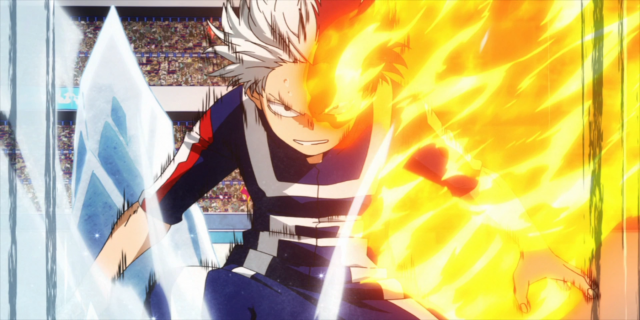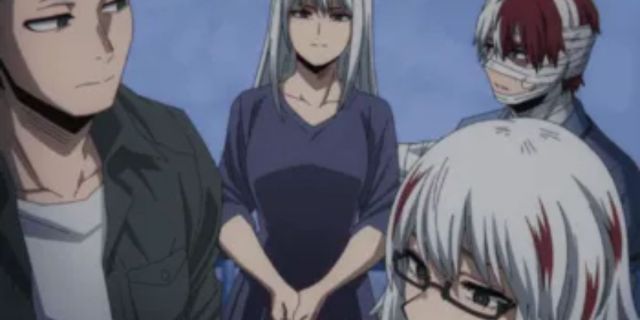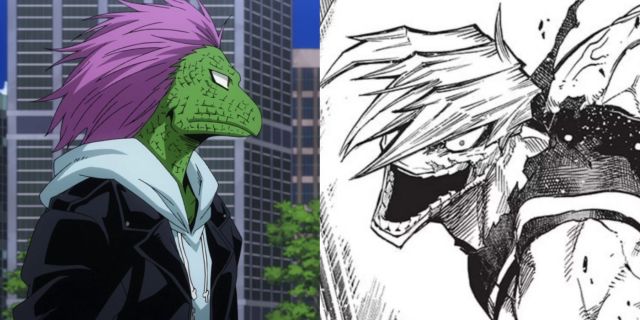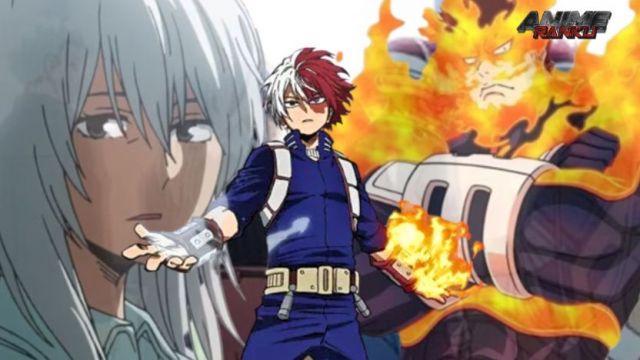Highlights
- Quirk marriages in My Hero Academia reflect the dark side of society, with unethical experimentation and invisible caste systems.
- The practice coerces people into forced marriages to conceive enhanced quirks, resulting in psychological trauma and physical defects in children.
- Quirk marriages risk the lives of offspring and perpetuate discrimination against those with physical abnormalities, leading to the potential eradication of a segment of society.
Upon initial inspection, the hero society depicted in My Hero Academia appears to epitomize the ideals of an ideal community, where heroes and civilians collaborate harmoniously to uphold peace. However, a closer examination of this societal framework exposes underlying fissures, with unethical experimentation and concealed caste systems permeating the hero world. One particularly insidious aspect is the prevalence of quirk marriages, a form of experimentation rooted in genetic selection.
For an extended period, quirk marriages have cast a shadow over the hero world, as individuals have been coerced into arranged unions solely for the purpose of producing augmented quirks. Although the prevalence of this practice has diminished over time, its repercussions linger conspicuously in the current hero society. Whether manifesting as psychological trauma or physical abnormalities, the offspring of quirk marriages bear the profound scars, revealing the darker facets of this seemingly flawless society.
The Idea Behind Quirk Marriages

The concept of quirk marriages hinges on the idea of selective breeding, a principle that may be well-founded for fortifying animal breeds but plunges into significant moral quandaries when applied to humans. The fundamental objective of quirk marriages is to amalgamate two potent quirks, giving rise to offspring endowed with an enhanced fusion of the original abilities. While quirks naturally evolve and strengthen across generations, the act of forcibly uniting two quirks solely for the pursuit of power is undeniably ethically questionable.
The peculiarity of the concept is further underscored by instances where individuals have been coerced into matrimony based solely on the potency of their quirks. Endeavor stands as a glaring illustration of this phenomenon, having manipulated Rei’s family through financial means to compel her into marriage. The outcome was a family steeped in psychological distress and perpetual misery. The involvement of heroes in such practices underscores that elements of society persist in engaging in this unethical behavior.
The emergence of quirk marriages gained traction during the second and third generations of quirk users. Although the practice was never officially outlawed, it has consistently been viewed through the lens of immorality due to the myriad ethical dilemmas it introduces. The series has delved into two facets of this issue through the problematic marriage of Enji (Endeavor) and Rei—a union that resulted in a fractured family and a child burdened with a self-harming quirk.
Victims of Quirk Marriages

The ethical dilemma inherent in selective breeding in humans is further compounded when it involves genetically engineering superpowers, rendering the practice wholly immoral. Yet, the reprehensibility of quirk marriages extends beyond merely manipulating genetic traits; it encompasses the profound consequences inflicted on the offspring subjected to this cruelty. The Todoroki family serves as a stark illustration, encapsulating the full spectrum of unethical outcomes stemming from forced matrimony.
Enji, driven by ambition, coerced Rei into marriage by financially influencing her entire family, leaving her with no recourse but to acquiesce. Despite Rei’s reluctance to have more children after Fuyumi Todoroki’s birth, Endeavor compelled her to bear four children. His satisfaction was derived from the birth of Shoto Todoroki, possessing the ideal amalgamation of Hellflame and Frost quirks, surpassing even Endeavor’s own abilities.
In the pursuit of crafting a successor, Endeavor callously jeopardized the lives of his own progeny, particularly Touya Todoroki, known as the villain Dabi. Dabi’s Blueflame quirk resulted from Endeavor’s Hellflame, yet he lacked the heat resistance that accompanied it. Instead, he inherited his mother’s cold resistance—a incongruous trait for a flame quirk. This rendered his power highly unstable, causing severe harm to his own body, evident in the gradual burning of his flesh. Despite being fully aware of these risks, Endeavor persisted in engineering a child, undeterred by the inherent drawbacks and consequences.
The Unethical Aspects of Quirk Marriages

Risking the lives of future offsprings is an unethical barrier on its own, yet this practice has a few other unintended effects on hero society. The most glaring one is the inadvertent shift towards the practice of eugenics, a controversial phenomenon that promotes procreation between genetically well-endowed individuals, while excluding those with socially undesirable qualities.
In the hero world, an unspoken discrimination exists against Heteromorphs, or those that possess quirks that produce physical abnormalities. These quirks are thought to be weaker than their counterparts, and users are often victims of prejudice due to their appearances. Quirk marriages would essentially exacerbate an already existing discrimination, as Heteromorphs would be entirely excluded from the gene pool, ending their existence almost entirely after a few generations.
Quirk marriages pose serious ethical dilemmas, and the plight of Heteromorphs is directly tied to this practice. From every single perspective, these marriages are a hotbed of botched quirks and psychological trauma, not to mention the eradication of an entire segment of society. Quirk marriages accurately represent the dark side of hero society, one that is often glazed over for the sake of promoting a narrative of a perfect hero world.
My Hero Academia is available to read on Manga Monster.















Leave a Reply